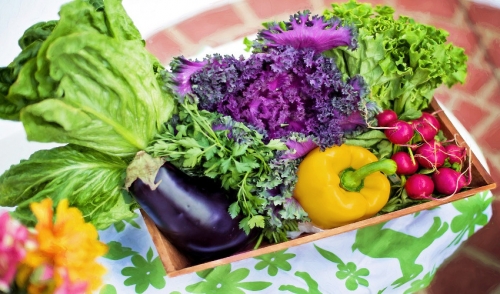
Organic Gardening Tips
In today’s society organic gardening is more popular than ever as gardeners attempt to avoid artificial fertilizers and the sometimes-harmful chemicals in pest control. People are more conscious about what they eat, and want the freshest and healthiest food possible. Organic gardening is not like conventional gardening. It does not use chemical pesticides and chemical fertilizers. Instead, it focuses on using natural or eco-friendly products. So if you are looking to start your own organic garden or looking for advice, here are three useful organic gardening tips.
The first tip to healthy organic gardening is to mulch. Mulching your garden is important because it protects the soil and controls weeds. When you protect the soil and control the weeds you allow for plants to maximize their nutrient absorption. This will provide you with a stronger and healthier product. Mulching is also important because it retains moisture and supplies nutrients. Mulching adds nutrients to your soil over long periods of time because it can keep the soil cool and moist even when the sun is out and bright. For organic gardening, the best mulch materials to use are leaves because they continue the organic matter recycling process and provide the most nutrition for your soil without any toxins.
The second useful organic gardening habit is introducing microbes. Organic fertilizers are great for providing nutrients for the soil and plants, but microbes also help maintain a healthy soil food web. The soil food web refers to the little army of soil organisms that make up and maintain the life of the soil. The best way to introduce microbes into the organic garden is through aerobic compost. This type of compost has the additional benefit of supplying nutrients and organic matter. When your compost runs out, you can use the leaves of plants or other effective microorganisms. This tip is really important and the one people avoid the most. Take the time to include microbial inoculants like compost tea, aerobic compost, and effective microorganisms to ensure that your organic garden stays healthy.
The third and final tip for maintaining a healthy, organic garden is moisture. Like conventional gardens, organic gardens need plenty of water. Water is vital to all living things in your organic garden, from the microorganisms in the soil all the way to the tip of the tallest plant. Be careful as to how much you water. If do not water enough or if you water too much, you will undoubtedly run into problems. Make sure to take into account the weather conditions where you live and maintain a constant watering routine. This will make sure the plants in your organic garden stay happy.
These are the three most important tips to organic gardening. Some of you may be doing a few of these things already, but if your not it is never too late to start!
